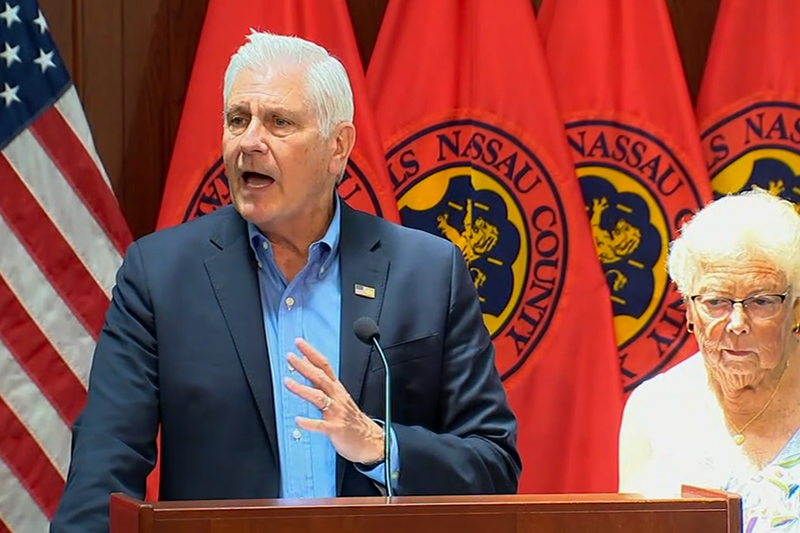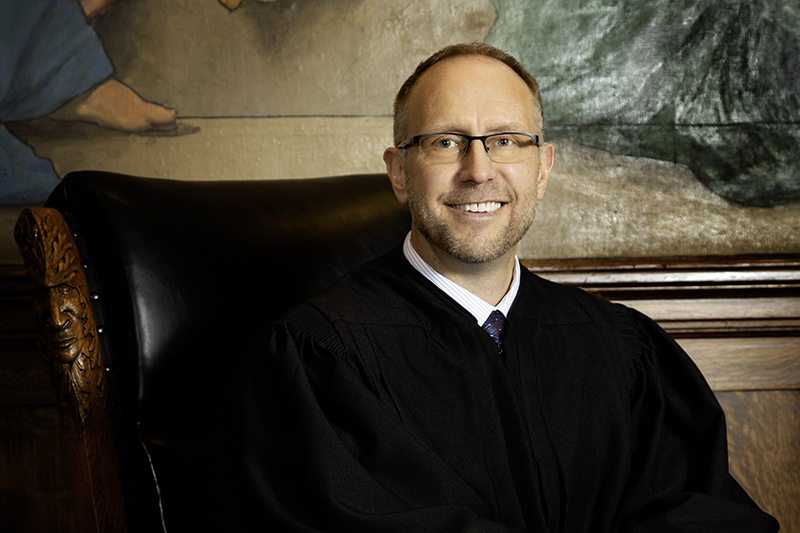Minnesota bill would impose criminal penalties on transgender athletes
Bill imposes penalties for trans females who compete in women's sports, or use female-designated facilities

A proposed bill in Minnesota that seeks to ban transgender athletes from competing in women’s sports would impose criminal penalties on trans female student-athletes who attempt to compete in sports based on their gender identity, or whom use female-designated facilities.
The bill, sponsored by State Rep. Eric Lucero (R-Dayton), defines who qualifies as “male” or “female” based on their chromosomal makeup. Those classified as “male,” including trans females, would be prohibited from trying out for or participating on a female-only team.
Under Lucero’s bill, a trans female who does compete in a sport designated for women would be considered guilty of a petty misdemeanor.
“A petty misdemeanor it not technically a crime, but the penalties are criminal,” explains Jess Braverman, legal director of the Minnesota-based advocacy group Gender Justice. “You could end up in front of a juvenile judge, forced to pay a fine of up to $300, and it ends up on your record and could come up in a job history search.”
Furthermore, Lucero’s bill would make a transgender female who uses female-designated changing facilities, locker rooms, or other spaces guilty of a full-on misdemeanor, which is equivalent to crimes such as driving while intoxicated, violating a domestic violence protection order, certain types of gun possession, and fifth-degree assault, or when a person intentionally inflicts pain upon another. The penalty for a misdemeanor could carry up to 90 days in jail and a fine of up to $1,000, with one to two years of probation.
“For a young person, that means they could be brought in front of the juvenile court, have the charge on their record, and placed in pretrial detention. So they could have to sit in juvenile detention while waiting for their trial, so it has serious consequences,” notes Braverman.
Erin May Quade, the advocacy director for Gender Justice, noted that while several lawmakers around the country in almost two dozen states have introduced bills to bar transgender athletes from competing based on their gender identity, Minnesota’s bill is the only that the organization has seen that imposes criminal-type penalties against the students themselves.
Furthermore, while the bill doesn’t specifically mention genetic testing, its use of chromosomal makeup as a standard for determining gender would almost undoubtedly subject transgender athletes — or cisgender females with intersex characteristics, or even those merely suspected of being transgender due to their appearance or failure to conform to gender stereotypes — to some form of genetic testing, Quade says.
Braverman notes that even on the petty misdemeanor charge, juvenile court judges often recommend that youth appearing for them enroll in a pro-social activity like an after-school club or sport in order to avoid detention.
“I used to represent kids charges with crimes and when you go in front of a juvenile judge, what they tell the kid to do is find a pro-social activity like sports. And so basically the judge is going to say, ‘Well, you’re here because you’re playing sports.’ So what is the kid supposed to do? So it’s just a mess,” she says.
See also: Biden administration withdraws support for lawsuit challenging transgender athlete inclusion
Another problem for Lucero’s bill is that the Minnesota Court of Appeals has already ruled in another case that barring transgender children from restrooms, locker rooms, and other facilities that match their gender identity is unconstitutional.
“We already have a ruling that this type of segregation is unconscionable under the Minnesota Constitution,” adds Braverman. “So we think that this bill, even if it did pass, wouldn’t be enforceable. So it’s all the more despicable that lawmakers are trying to push it. They know it’s unconstitutional. They’re just playing games with kids’ lives.”
Last year, Lucero, the chief sponsor, tried to push a bill that would have revoked funding from libraries that host Drag Queen Story Hour events.
While Quade says it’s highly unlikely the bill would pass in Minnesota, given that Democrats control the State House of Representatives and the governor’s mansion, she believes the extreme nature of the penalties outlined in the bill reveal a deeper animus toward LGBTQ individuals.
“I think it’s clear that anti-LGBTQ groups have continued to focus their legislative messaging and legal campaign and center it in Minnesota. And it’s probably because we have strong support for LGBTQ people here. We were the first state in the nation to vote down an anti-gay marriage equality amendment. We were one of the first states to pass protections for LGBTQ people in our Minnesota Human Rights Act, in particular for gender identity and gender expression,” she notes. “And so I think that LGBTQ hate groups often target Minnesota for the first bursts of their attacks because they want to see what they can get away with here before spreading it across the nation.
“We know that this anti-trans youth and sports stuff is spreading across the nation and a whole bunch of states,” adds Quade. “But this bill really gives away the game: It’s never been about sports. It’s about pushing transgender, gender nonconforming, non binary people to the margins of society and erasing them completely.”
Chase Strangio, the deputy director for Trans Justice at the American Civil Liberties Union, which is representing two transgender athletes from Connecticut as part of an ongoing lawsuit, denounced the Minnesota bill.
“This is one of the most extreme political attacks on trans youth that I have ever seen,” Strangio said in a statement. “Even if the bill does not pass, it has already sent a dangerous message to trans youth in Minnesota and around the country. Being trans is not a crime and trans youth should never be banned from sports or criminalized for simply being themselves.
“All young people should have the opportunity to try out for school sports and be a part of a team,” Strangio added. “Denying that opportunity to transgender youth is harmful, wrong and illegal. That’s why coaches, athletes, educators, and medical professionals have joined with transgender youth and organizations fighting for women in sports to speak out and oppose these bans. As we have been saying in states around the country considering these attacks on trans youth: if you pass this bill, we will see you in court.”
Read more:
Angola decriminalizes same-sex relationships, bans anti-gay discrimination
CPAC speaker proudly tweets about rejecting her transgender child
Support Metro Weekly’s Journalism
These are challenging times for news organizations. And yet it’s crucial we stay active and provide vital resources and information to both our local readers and the world. So won’t you please take a moment and consider supporting Metro Weekly with a membership? For as little as $5 a month, you can help ensure Metro Weekly magazine and MetroWeekly.com remain free, viable resources as we provide the best, most diverse, culturally-resonant LGBTQ coverage in both the D.C. region and around the world. Memberships come with exclusive perks and discounts, your own personal digital delivery of each week’s magazine (and an archive), access to our Member's Lounge when it launches this fall, and exclusive members-only items like Metro Weekly Membership Mugs and Tote Bags! Check out all our membership levels here and please join us today!

























You must be logged in to post a comment.